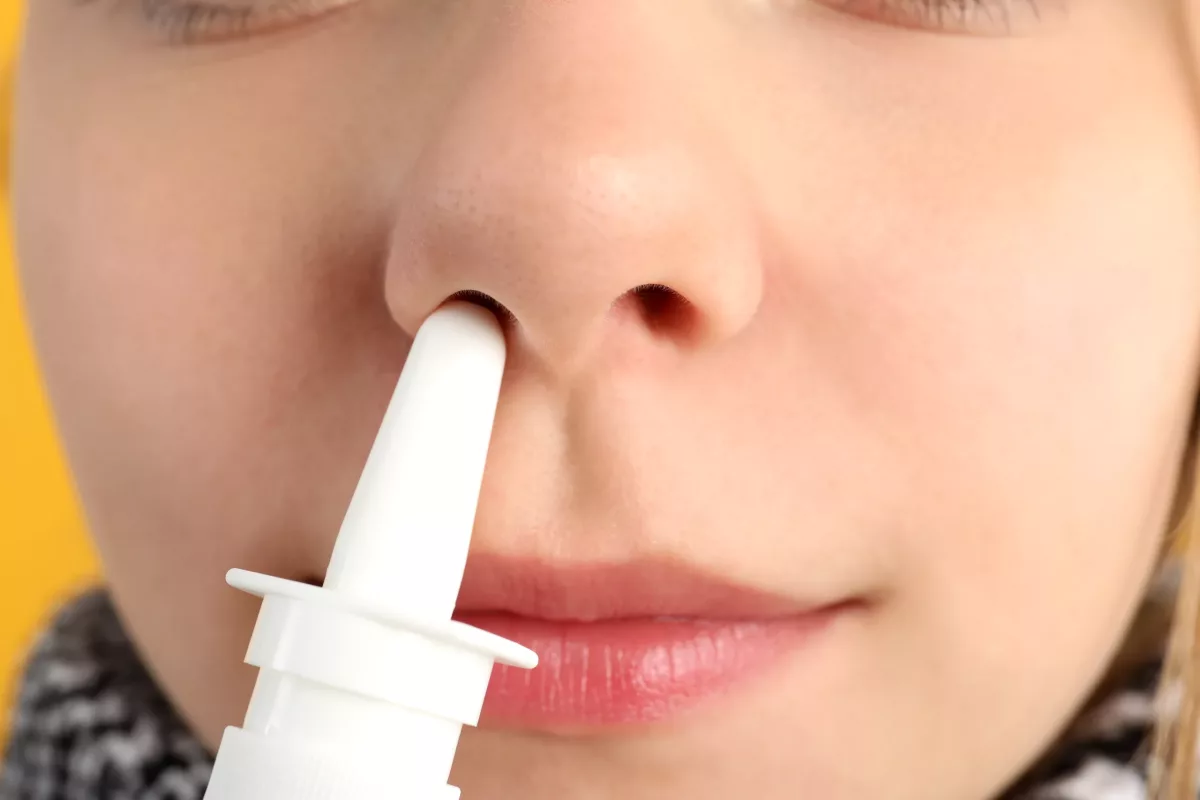A condition that leads to swelling and inflammation of the spaces inside the head and nose (also known as sinuses) is called chronic sinusitis. Usually, this health condition lasts 12 weeks or longer, despite following treatment.
This is a common disease that prevents the mucus from draining, which causes a stuffy nose, breathing problems, and the area that surrounds the eyes may feel swollen or tender (sometimes).
Moreover, nasal polyps (specific growths in the sinuses), infections, and swelling of the sinuses’ lining may also occur along with chronic sinusitis. Sometimes, this condition is called chronic rhinosinusitis, and it may affect both children and adults.
Symptoms
Check below the most common symptoms of chronic sinusitis:
- Swelling, tenderness, and pain that happens around the eyes, nose, cheeks, or forehead
- Smell and taste changes
- Congestion (blocked or stuffy nose)
- Breathing problems
- Postnasal drip (in such cases, mucus goes to the back of the throat)
- Runny nose (discharge of thick and discolored mucus from the nose)
However, this condition may cause other symptoms as well. For example:
- Ear pain
- Headaches
- Cough
- Toothaches
- Sore throat
- Tiredness
- Bad breath
The only difference between chronic and acute sinusitis is how long it lasts. However, people with acute sinusitis usually experience the same symptoms as people with the chronic form. Furthermore, acute sinusitis is often linked with a cold.
It is advised to see a doctor if any of the following symptoms occur. Examples include:
- Fever
- Severe headache
- Swelling or redness around the eyes
- Confusion
- Neck stiffness
- Vision changes (such as double or blurred vision)
- Forehead swelling
- Recurrent sinusitis
Causes
In most cases, it is not possible to determine the exact cause of chronic sinusitis, but there are some health conditions that may cause this condition in children and teens. One of them is cystic fibrosis. Check below some conditions that may worsen chronic sinusitis:
- The common cold or other infections are caused by viruses or bacteria.
- Problems that occur inside the nose (for example, a deviated nasal septum, nasal polyps, tumors, and others)
Risk Factors
While not every time it is possible to determine the exact cause of chronic sinusitis, physicians have identified some factors that could elevate your risk of developing it. Check some examples below:
- Fungal infections
- Dental infections
- Being a smoker, regular secondhand smoke, or continuous exposure to other pollutants
What Happens if Chronic Sinusitis is Left Untreated?
People who ignore the symptoms and do not treat the disease may experience some complications. For example:
- Vision problems (these include reduced vision and sometimes blindness)
- Infections – This complication occurs quite rarely, but it is serious and may spread to the brain and spinal cord. This condition is called meningitis. Other possible infections may spread to the bones (osteomyelitis) or skin (cellulitis).
- Orbital cellulitis (inflammation of the eye socket)
- Cavernous sinus thrombosis (this is a condition in which a blood clot forms in the brain’s large vein)
- Seizures
If any of the previous complications occur, contact your healthcare provider immediately. You can also consult with your doctor about measures to prevent chronic sinusitis complications.
How to Prevent Chronic Sinusitis?
Check below some tips that may help reduce the risk of developing chronic sinusitis:
- It is recommended to stay away from people with infections. You should also wash your hands regularly with soap and warm water, especially before eating.
- Manage existing allergies
- Quit smoking or never begin. However, secondhand smoke also may cause chronic sinusitis and lung damage.
- Use a humidifier
Diagnosis
First, doctors will perform a physical examination and ask some questions about your medical history and symptoms. During the examination, your doctor will check for abnormalities linked with chronic sinusitis. However, to confirm the disease and rule out others that cause similar symptoms, you may need to do some tests. For example:
- Nasal endoscopy – During this procedure, doctors use a long and flexible tube with a lighted camera on the end to examine the sinuses.
- Imaging tests – These tests are used to get detailed images of different structures and organs of the body. Doctors usually perform CT (computerized tomography) scans or MRI (magnetic resonance imaging) scans.
- Nasal and sinus samples – These tests are rarely used to diagnose chronic sinusitis.
- Allergy tests – In some cases, allergies may cause chronic sinusitis. Therefore, doctors may perform some tests to check for allergies.
Treatment
The following treatments are usually recommended for people with chronic sinusitis. For example:
- Nasal corticosteroids – Some people may need nasal sprays to prevent or treat swelling. Physicians usually recommend Budesonide, Beclomethasone, Mometasone, Fluticasone, and others.
- Saline nasal rinses – It is recommended to use a squeeze bottle, neti pot, or home remedy (nasal lavage) to clear the sinuses.
- Corticosteroid shots or pills – These medications are usually used in people who have nasal polyps to reduce the symptoms.
- Allergy medications – These medicines are prescribed by doctors when an allergy causes chronic sinusitis.
- Aspirin desensitization treatment
- Other medicines – For example, Dupilumab, Omalizumab, or Mepolizumab. Previous medicines are usually recommended by doctors to treat nasal polyps and chronic sinusitis.
Antibiotics
This group of medications is prescribed by doctors to treat a bacterial infection that causes chronic sinusitis.
Immunotherapy
This treatment involves allergy shots that help the immune system fight against the infections that cause chronic sinusitis.
Surgery
This treatment is often recommended by doctors when others do not work. It involves an endoscope and small cutting tools to remove the tissue that causes the disease.
Home Remedies
Check below some tips that may help lessen the symptoms:
- Drink plenty of fluids
- Rest (it helps the body recover faster)
- Warm compresses
- Regularly maintain clear sinuses to prevent dryness and breathing problems. You can breathe in the vapor from hot water or take a hot shower. It usually helps lessen the symptoms and drain mucus.
Frequently Asked Questions
How do you treat chronic sinusitis?
The treatments are usually different among people with chronic sinusitis. Check below the most common treatments prescribed by doctors:
- Oral and nasal corticosteroids
- Antibiotics
- Allergy medicines
- Leukotriene antagonists
- Saline nasal rinses
For more details, discuss it with your doctor.
What autoimmune disease causes chronic sinusitis?
There are some autoimmune diseases that may cause chronic sinusitis. For example:
- Wegener’s granulomatosis (this condition causes sinus pain, bloody discharge, and nasal ulcers).
- Churg-Strauss syndrome
- Sjogren’s syndrome
- Systemic lupus erythematosus
- Ankylosing spondylitis
- Polymyositis
- Rheumatoid arthritis
- Sicca syndrome
How do doctors cure chronic sinusitis?
In most cases, people with chronic sinusitis are treated with surgery (sinus surgery). While often this condition is cured, sometimes it can be managed only. If you have additional questions, ask your healthcare provider.




